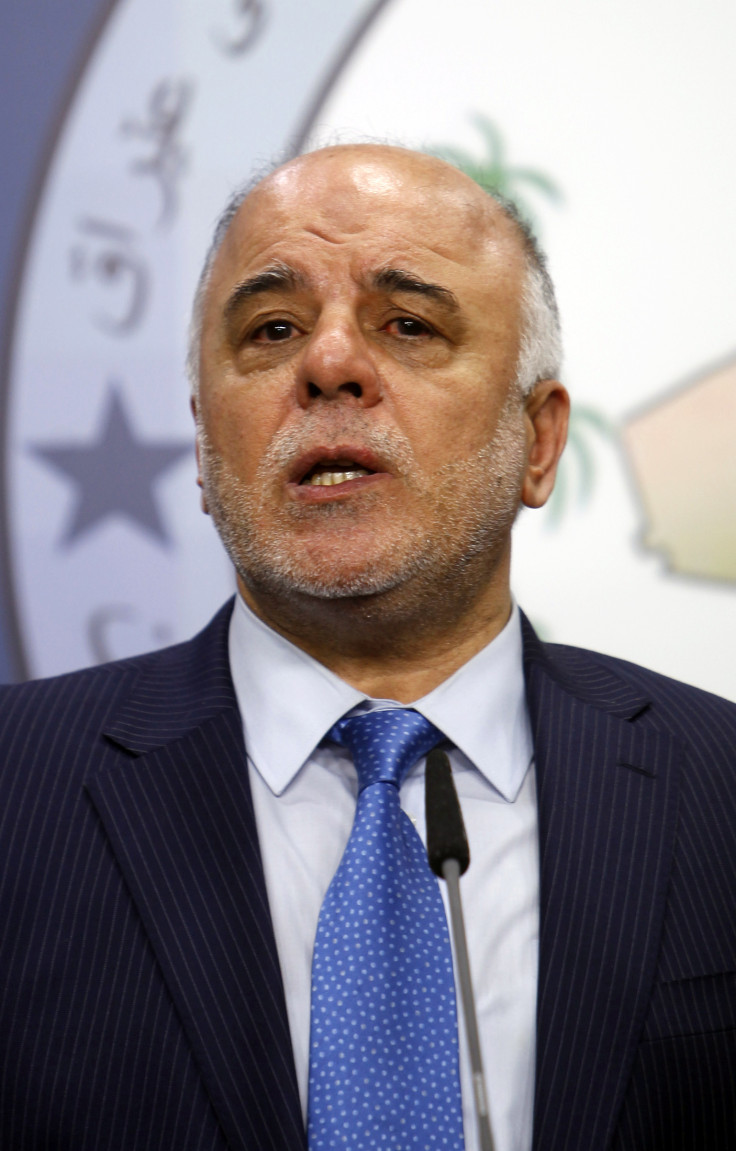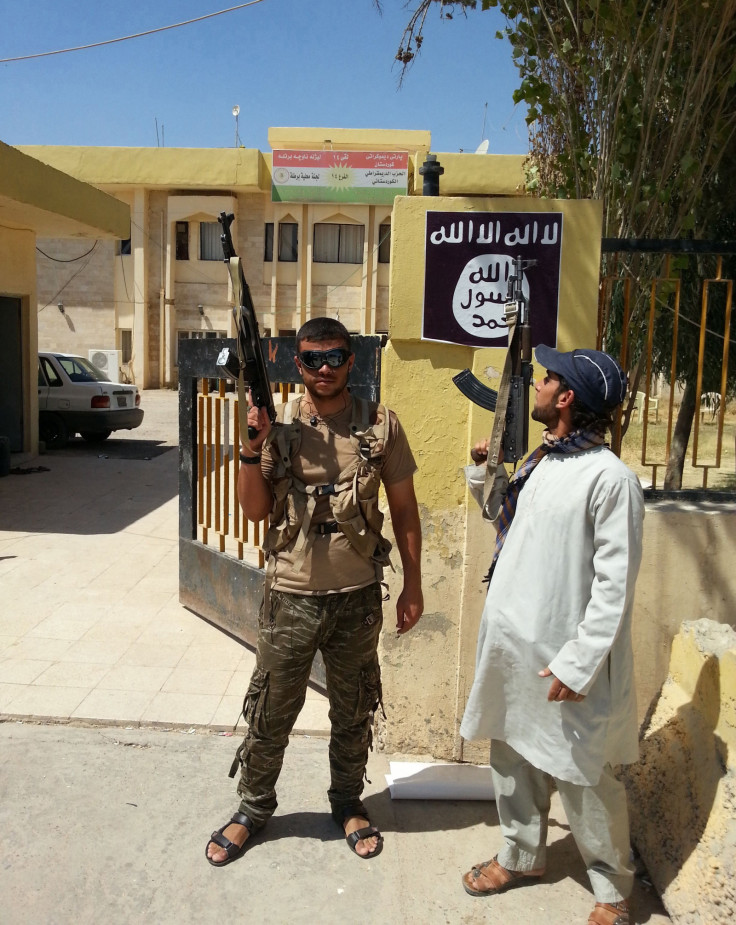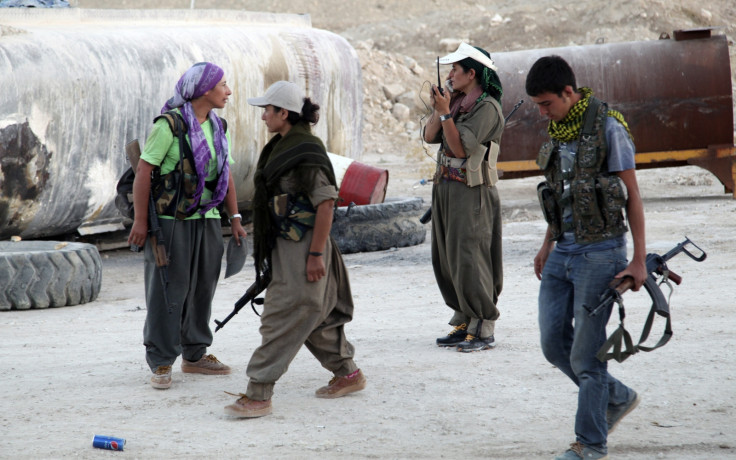Who is Iraq's New PM Haider al-Abadi and How Can He Keep the Country Together?

The speed with which Haider al-Abadi was endorsed as Iraq's new Prime Minister by Iran and the United States revealed a lot about the changing order in the Middle East.
The most immediate threat to the region's stability, the old enemies seem to agree, is the stellar rise of the Islamic State, first in Syria and currently in Iraq.
The man soon to be tasked with confronting the ultra-violent jihadists, who have seized swathes of territory in the country's north and west as well as a sizeable portion of Syria, will have to do so with a weakened army and a divided government.
Abadi, a Shia Muslim who spent much of his life in exile in London, belongs to the Islamic Dawa Party of Iraq's ousted Prime Minister, Nouri al-Maliki.
He has previously been touted as a replacement for the embattled leader and received the backing of the Dawa faction in early August, following months of political gridlock.
In a June interview with the Huffington Post, Abadi presented himself as a moderate who wanted to unify Iraq's faiths and sects.
Iraq would "have to be careful not to become involved in a sectarian war," he said. "Shias are not against Sunnis and Sunnis are not against Shias."
He returned to the country of his birth in 2003 when Saddam Hussein was toppled by the invading American forces, immediately involving himself in Iraqi politics.
He's previously taken on positions at the head of the parliamentary committee on the economy, as well the investment and reconstruction committee, while his most recent post was that of deputy speaker of the parliament.
Searching For Unity
Abadi's moderate political outlook is the key reason that Washington and Tehran backed his nomination.
Assuming he is the country's next leader, he inherits the position from a divisive figure who exploited the country's religious and sectarian fault lines in a quest for greater personal and political power.
Al-Maliki froze the Kurds out of the political process and riled Iraq's Sunni minority, centralising power and wealth in Baghdad.
Car bombings targeting central government aligned police and security forces became a daily occurrence in many of Iraq's cities. Launched by Sunni militants, the body count from this growing insurgency regularly neared 1,000 people a month over the course of 2013.
When disaffected Sunni tribes in Anbar province camped out in protest against Baghdad's increasingly authoritarian rule, Al-Maliki sent in the army to crush the camp.
His failure to negotiate and seek compromises with the regions, especially the Sunnis, alienated a large section of the population.
Al-Maliki fostered an atmosphere of discontent that Isis was able to exploit, firstly in their seizure of territory in Anbar and Nineveh provinces and secondly in their governance of the regions. The ousted PM's divisiveness within Iraq is the main reason he lost the support of the US and Iran.
The Islamic State Threat
The jihadists, whose brand of extreme Sunni Islam is enforced by the threat of brutal violence, have captured the world's attention.
While many European and American analysts have focused on the potential for so-called 'blowback' from Isis on its domestic soil, the group poses an immediate and serious threat to the order in Iraq.

In addition to grabbing the country's second city of Mosul, the Islamic State has secured key energy facilities in the territory it controls. It is currently in charge of the country's biggest dam, just outside of Mosul, as well as a range of oil facilities.
Controlling the dam gives the group power over water and electricity supplies for a large part of the country, while it also enables them to flood key cities if they choose to.
Iraq's army and security forces put up a woeful display when the jihadists rushed on Mosul in June, fleeing in great numbers.
While Al-Maliki embarked on a divisive response, rousing long-dormant Shia-only militias in order to secure Baghdad, Al-Abadi should look to revitalise the demoralised national army and security forces.
He will no doubt receive support from the US and Iran, while France and the UK have shown an interest in stepping up their involvement in a possible campaign against the Islamic State.
Given US President Barack Obama's reservations over deploying more 'boots on the ground' in Iraq, this support is most likely to come in the form of weapons and air strikes.
Kurdish Question
The future of Iraq's Kurds is another pressing issue facing the country's next leader.
Relations between Baghdad and Arbil were strained to breaking point while Maliki was leader. A long-running dispute over the Kurds' right to export oil without Baghdad's approval saw Baghdad withholding funds from the Kurdistan Regional Government.
Infuriated by Baghdad's grip on its economy, the KRG began transporting oil via a new pipeline to the Turkish port of Ceyhan, where it was loaded on to oil tankers in a bid to generate revenues.
Baghdad cried foul, accusing the Kurds of smuggling the country's resources and threatening to sue any international buyers of the crude.

Given Abadi's reputation as a moderate, the KRG should expect a better working relationship with the central government but it will probably face pressure to abort its bid for statehood.
In July, the president of the semi-autonomous region instructed the regional parliament to prepare for a vote on outright independence.
Statehood is a long-held goal for the semi-autonomous Kurds in Iraq. Their spiritual home of Kirkuk, occupied by Kurdish security forces after the military fled, would be their capital city of choice.
However, recent clashes with the Islamic State proved that the Kurds' forward momentum towards independence is far from secure.
While the US launched airstrikes to protect its significant commercial interests in the Kurdish region, Washington does not currently support the Kurdish attempt to secure statehood.
Indeed, the official line from Washington is that Iraq must remain unified and maintain its current borders, effectively snubbing the Kurdish bid for independence.
The US has criticised Kurdish efforts to sell oil independently of Baghdad on international markets. A handful of tankers loaded with Kurdish crude oil have turned away from the American shore, fearing that the cargo would be seized by US authorities.
Meanwhile, France has announced plans to ship arms to the Kurds, while German Foreign Minister Frank-Walter Steinmeier said Berlin is prepared to export arms to boost the Peshmerga forces' firepower.
While US government officials have said they are not considering arming the Kurds, on August 11 the Associated Press reported that the CIA would supply Peshmerga with light arms and ammunition.
It reflects American reluctance to expedite the disintegration of Iraq but a desire to protect significant interests in the Kurdish territory that is now within striking distance of the Islamic State. It is a balancing act that will be tricky to maintain.
© Copyright IBTimes 2025. All rights reserved.






















